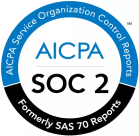Hello readers,
Welcome to the exciting world of Knowledge Process Outsourcing (KPO). Careers in the KPO industry are more common than you think—probably, you’re already a part of this nearly 731-billion-dollar market. India has become the go-to place for KPO jobs, offering a diverse set of opportunities in research, analytics, healthcare, mortgage and legal to name a few. Whether you’re a fresher ready to kick off your career, a seasoned professional seeking a new challenge, or just someone curious about the world of KPO, this blog is for you.
We will guide you through this industry of opportunities and show you how you can build a meaningful and thriving career in the KPO industry.
First things first—What is Knowledge Process Outsourcing?
Knowledge Process Outsourcing is a strategic partnership between a business and a third-party vendor. A business decides to outsource specialized knowledge and expertise to a trusted partner to business processes. Unlike traditional outsourcing, KPO involves the outsourcing of high-level, information-intensive tasks that require deep domain knowledge and analytical skills. These tasks often involve research, data analysis, financial modeling and decision-making processes. KPO leverages intellectual capabilities to add value to a business’ operations. This has majorly contributed to boosting the projections for the KPO sector, which is likely to be worth $157292.06 million by 2028.
Rookie mistake? KPO and BPO are different
Before thinking about building a career in the KPO industry, it’s important to know what makes it different from the good old Business Process Outsourcing (BPO) sector. It’s true that BPO and KPO both involve outsourcing tasks, but they differ in the complexity and nature of the outsourced functions. BPO typically deals with routine, repetitive tasks, often transactional in nature, such as customer support, data entry or payroll processing. On the other hand, KPO handles knowledge-based functions that demand specialized skills and in-depth understanding. The focus shifts from process-driven tasks to strategic decision-making and problem-solving, making KPO a higher-value proposition for businesses looking to benefit from professional expertise.
The role of a KPO company in global business
KPO companies are knowledge partners to organizations around the world. A company like HelioNext India acts as an extension of their clients’ teams, offering expert insights and well-researched inputs to enable informed decision-making. KPO companies hire talent from diverse geographical locations, offering a pool of experts with varied perspectives. This not only enhances the quality of output but also ensures 24/7 productivity. As strategic collaborators, KPO companies drive innovation, efficiency and competitiveness in the world of business.
3 Reasons to Choose a Career in the KPO Industry Now
The KPO industry is one of the fastest growing sectors in the world. If you’re curious about building a career in this sector, here are three things that you may find useful.
1. Growth and Financial Benefits of Working in the KPO Sector
Growth: KPO roles involve complex problem-solving, data analysis and research, providing employees with continuous opportunities to enhance their skills and knowledge. This not only keeps the work engaging but also ensures personal and professional growth
Competitive compensation: KPO positions often come with attractive salary packages. The industry recognizes and appreciates specialized expertise, acknowledging the value that skilled professionals bring to the table. This makes a career in KPO financially rewarding and encourages a commitment to continuous learning and development
2. Promising Career Opportunities
Niche SMEs: Professionals can specialize in niche areas, becoming experts in fields such as market research, financial analysis, or scientific research. The diverse nature of KPO services means individuals can carve out unique career paths that align with their interests and strengths.
Global clients: KPO companies frequently collaborate with global clients and so employees gain exposure to international business practices and diverse work cultures. This cross-cultural experience not only broadens horizons but also enhances adaptability and global awareness, essential attributes in today’s interconnected world.
3. High Demand for KPO Professionals
A number of industries are increasingly relying on outsourcing knowledge-intensive tasks which implies that individuals with specialized skills are in high demand. This has opened doors to a plethora of job opportunities in different fields such as IT, finance, healthcare, mortgage and marketing to name a few.
Prerequisites for a KPO Career
A successful KPO journey demands educational qualifications and industry-specific skills that complement each other along with a mindset tailored to tackle industry challenges.
Common Educational Qualifications and Degrees
A bachelor’s degree serves as the entry point, with preferences often given to candidates holding degrees in disciplines like finance, engineering, business administration, computer science or related fields. For those aiming higher, advanced degrees such as master’s or professional certifications can boost your chances particularly for roles requiring specialized expertise
Soft Skills and Attributes Suited for KPO Roles
Beyond formal education, certain soft skills and attributes are indispensable for success in KPO. Strong analytical and critical thinking skills, effective communication skills, both written and verbal, are essential for conveying insights to clients and collaborating with diverse teams. Adaptability and a proactive approach to learning are also highly valued.
Specialized Knowledge Areas in Demand
Industries often seek professionals with specialized skills, such as market research, financial analysis, scientific research, legal processes or healthcare analytics. Staying informed about industry trends and emerging technologies within your chosen niche can provide a competitive edge, positioning you as a sought-after specialist in the KPO domain.
Developing Essential Skills for a Successful KPO Career
Yes, your degrees matter but to have a thriving career in the KPO industry, you should be acing some soft skills. Let’s take you through some of them.
Analytical Skills and Critical Thinking
KPO roles often involve dissecting complex problems, interpreting data and deriving meaningful insights. Sharpening your analytical prowess enables you to approach challenges strategically, enhancing your ability to provide valuable solutions and contribute to informed decision-making
Research and Data Analysis Skills
Being able to meticulously assess vast datasets, extract relevant information and synthesize findings are key aspects of many KPO roles. Cultivating expertise in research methodologies and data analysis tools empowers you to deliver accurate and actionable insights that drive the success of knowledge-based projects
Communication and Language Proficiency
Strong verbal and written communication skills are essential for conveying complex ideas in a clear and concise manner. Additionally, language proficiency, especially in English, is often a key requirement due to the global nature of KPO collaborations. Effective communication enhances your ability to present findings, collaborate and build lasting professional relationships
IT Skills and Software Proficiency
Data management tools, analytics platforms or industry-specific software, familiarity and expertise in using various tools enhance efficiency and effectiveness in your role. Continuously updating your IT skills ensures you stay abreast of industry advancements, positioning you as a tech-savvy professional ready to face evolving challenges
There are several ways to enhance these soft skills. You could check if your organization offers any on-the-job training programs or you may even explore popular training and certificate courses on websites like Udemy, LinkedIn and Coursera.
Common Job Profiles in KPO: An Overview
The KPO industry presents a diverse array of job profiles, each contributing uniquely to the sector’s dynamic landscape. Here’s a glimpse into some common roles, along with their responsibilities and requisite skills.
Research Analyst
Responsibilities: Conducting in-depth research, gathering relevant data and providing insights to support strategic decision-making.
Skills Required: Strong analytical skills, attention to detail, proficiency in research methodologies and the ability to synthesize complex information.
Financial Analyst
Responsibilities: Analyzing financial data, preparing reports and offering recommendations for financial planning and investment decisions.
Skills Required: Financial modeling expertise, data analysis proficiency, knowledge of accounting principles and a keen understanding of financial markets.
Business Analyst
Responsibilities: Evaluating business processes, identifying areas for improvement and proposing solutions to enhance efficiency and effectiveness.
Skills Required: Analytical thinking, process mapping, strong communication skills and a comprehensive understanding of business operations.
Market Research Analyst
Responsibilities: Studying market trends, consumer behavior and competitive landscapes to provide insights for product development and marketing strategies.
Skills Required: Market research techniques, data interpretation, statistical analysis and effective communication skills.
Legal Process Outsourcing (LPO) Professional
Responsibilities: Handling legal research, document review and other legal processes to support law firms and corporations.
Skills Required: Legal knowledge, attention to detail, proficiency in legal research tools and an understanding of global legal practices.
Data Scientist
Responsibilities: Extracting valuable insights from large datasets using statistical methods, machine learning and data analysis.
Skills Required: Programming skills (Python, R), machine learning expertise, data visualization and a strong foundation in statistics.
Medical Research Analyst
Responsibilities: Conducting research in the healthcare domain, analyzing medical data and contributing to medical studies.
Skills Required: Knowledge of medical terminology, research methodologies, data analysis and an understanding of healthcare regulations.
Content Analyst/Writer
Responsibilities: Creating and editing content for various purposes, such as reports, articles or marketing materials.
Skills Required: Excellent writing and editing skills, attention to detail and the ability to convey complex information in a clear and concise manner.
The KPO sector offers several growth opportunities to both freshers and seasoned professionals. If you’re at the beginning of your career, you will find many platforms to learn and develop new skills and if you’re an experienced player, you can explore several options to demonstrate your expertise. Ready to make your move?
Get the latest industry updates delivered to your inbox (no spam, we promise!): Subscribe to our blog today.





